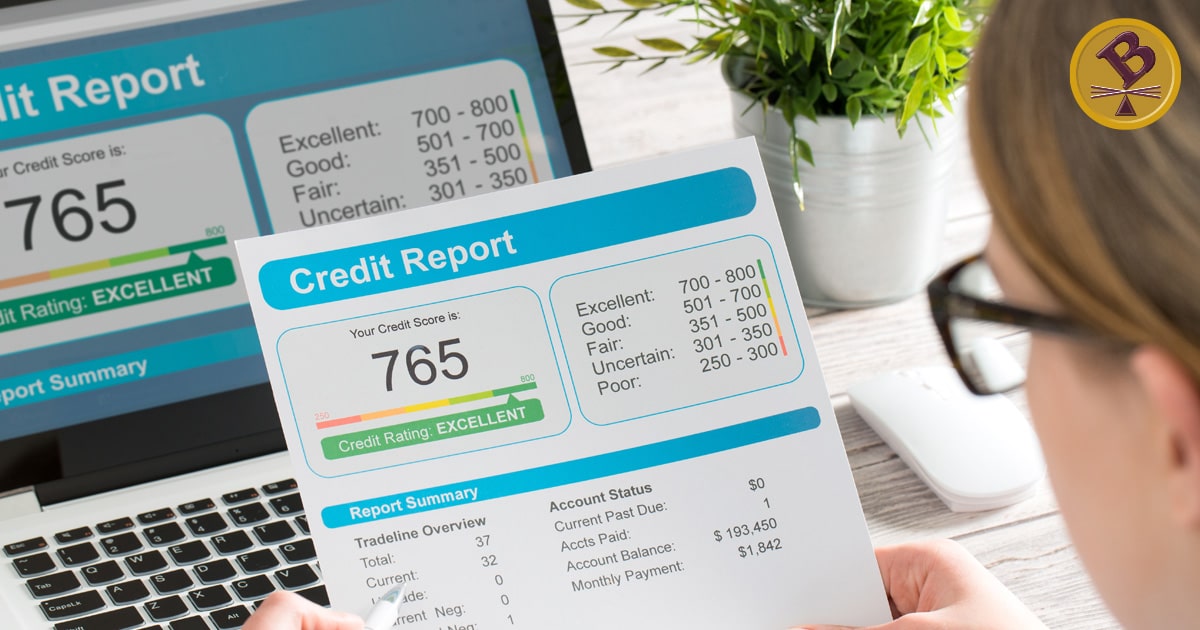Do you know what is on your credit report? What can you do about errors on credit reports, and how will you know if there is one on yours?
In one study done by the Federal Trade Commission (FTC), it was determined that 26% of individuals found at least one error on their credit report! That is frightening to think about, as we all want to have good credit scores!
If you are just joining us in this series on credit reports, be sure to go back and check out part one, which covered what a credit report really is, the factors that impact your credit report, and the importance of a credit report on your finances.
In this article, we will cover the details of what is listed on your credit report so that you can be aware of this information and can verify that it is correct with the credit reporting agencies. We’ll also go into detail about the ways you can get a copy of your credit file!
What Is On Your Credit Report?
There are many things that are reported on your credit report. It’s important that you understand what is reported on your behalf, as this information makes a difference in what your credit score is. There are 4 kinds of information sources that are reported on your credit report. Let’s review them for further clarification so that you can understand what to look for.
Personal Identification Information
Your full legal name and address are some of the first things you will see on your credit report. Any other legal names you have had will also be listed, along with your previous addresses. Also, your social security number and date of birth are listed. Finally, your employment information is contained on your credit report.
Your Personal Identification Information does not affect your credit score, so while it is not suitable to have incorrect information here, it will not damage your credit score. You will want to get any errors fixed for reporting purposes, but it will not affect your credit. This is good news if you have moved around a lot.
As you keep track of the information on your credit file, keep track of your credit score to determine if it goes up or down. Learn more about how your credit score is calculated for further information on this topic.
Credit Accounts
Credit accounts include mortgages, credit cards, and other loans you have had in your name. The information listed on your credit report will include the name of the account, the type of account it is (credit, loan, mortgage, etc.), the date you opened the account, the credit or loan amount, the balance you have, and your payment history.
Part of your payment history includes whether you have made payments to lenders on time or not. If you have been in the habit of making late payments, you might want to establish good standing with lenders before applying for a big loan.
Your Credit Account Information does affect your credit score, so it is important that this information is accurate. For example, if you are getting ready to apply for your first mortgage loan, you know they will pull your credit report. This means your credit score is important. You should get a copy of your credit report ahead of time.
Then, you will be able to check your credit report for any errors, and you will be able to verify and understand what your credit score is. If you are denied the loan, you can better understand why the lender did or did not approve your application.
Any Credit Inquiries
Whenever you apply for loans, you are authorizing a lender to look at your credit report. This is then listed on your credit report. Since this information does get reported and does impact your credit score, it is a wise idea to look for anything suspicious on your credit report in terms of any credit inquiries that have shown up.
Learn more information about how credit inquiries can affect your credit score.
Your Public Record Information
Public records include anything that is done inside the justice system. If you have been in court, it is a matter of public record. If you have court records, bankruptcy, overdue debt, or have had accounts that have gone into collections, you can expect to see this information reported on your credit report.
If you have had a Chapter 7 Bankruptcy, it will stay on your credit report for 10 years. If you have had a Chapter 13 Bankruptcy, it will stay on your credit report for 7 years. When you view your credit report, be sure to verify that the information is correct since this does impact your credit score.
How to Get a Copy of Your Credit Report
You are able to get one free copy of your credit report every 12 months, according to the Fair Credit Reporting Act (FCRA). Additionally, if you are a resident of a certain state, you may be entitled to receive a second personal credit report at no cost or at a reduced cost from each of the 3 major credit reporting agencies.
The states that are eligible for this second report include Colorado, California, Connecticut, Maine, Maryland, Minnesota, Massachusetts, Georgia, Montana, New Jersey, Vermont, Puerto Rico, and the United States Virgin Islands.
The 3 major credit agencies are:
- Experian Credit Bureau (1-888-397-3742)
- TransUnion Credit Bureau (1-877-322-8228)
- Equifax Credit Bureau (1-866-349-5191).
Additionally, if you have been denied employment, credit, or insurance in relation to your credit, you can ask the specific credit bureau for a free copy of your credit report. You must do this within sixty days of being denied credit. Just call the toll-free number provided above for more information or visit their websites.
If you have discovered errors in your credit file, you should contact the credit bureau. Ask them to investigate and correct any errors that you have determined to be on your credit report. It is their responsibility by law (the Fair Credit Reporting Act) to do this. Under this Act, the credit agencies must make the corrections and investigate the situation within thirty days.
Conclusion
Credit reports are serious business, as they affect your finances in a real way. You must make sure that your crediting information is correct. Be sure to reach out and contact the credit bureaus if you find an error on your credit report.
Do you need help with business consulting or another area of your finances? Would you be interested in a free business consultation with Borshoff’s tax expert, Sherry Borshoff? Be sure to contact us today if you would like more information about the ways in which we can help you.
We’d love to add you to our list of satisfied customers! Find out more information today!





